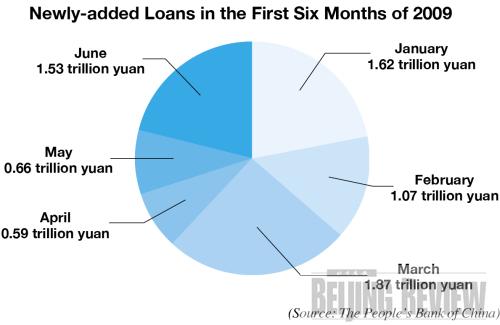| 
Numbers of the Week
390 million
The nation's medical insurance system will cover 390 million urban residents by the end of this year.
450 billion
China will need to invest 450 billion yuan ($66 billion) in energy-conservation and environmentally friendly industries in the next five years.
TO THE POINT: Starting July 1, the Chinese currency renminbi can be used as the settlement currency for cross-border trade, with pilot programs launched in some neighboring countries and regions. The global economic recession hasn't dampened Chinese enthusiasm for luxury products, and the country is expected to be the second largest market for luxuries. Venezuela plans to ink another $4-billion oil-for-loan agreement with China, a win-win scenario that both sides would like to see. The automobile market is full of complexities. China has emerged as the largest auto market in the world, luring more foreign automakers to tap this vast territory. Coming in, Italian auto giant Fiat will partner with Guangdong Automobile to shrug off its misfortunes in the Chinese market in the past decade. Going out, Beijing Automobile is seeking to acquire the unwanted Opel brand from General Motors, but has come under harsh criticism from analysts.
By LIU YUNYUN
Internationalizing RMB
The Chinese currency renminbi has made a further step out into the international arena as a settlement currency for cross-border trade, according to the Administrative Measures on Renminbi Settlement Pilot Places for Cross-border Trade adopted on July 1.
Pilot programs will be carried out first in Hong Kong, Macao and the Association of Southeast Asian Nations.
Internationalizing the renminbi is imperative to absorb excessive liquidity in the domestic market, and can effectively steer clear of sharp fluctuations in other major foreign currencies in international trade.
Meanwhile, using the renminbi as settlement money can expand the business scope of commercial banks, which will be able to introduce new services such as settlement services, remittance and documentary letter of credit. Before, Chinese commercial banks couldn't compete with their foreign peers in terms of international business transactions due to limited financing capability, said Zhang Xiaoming, a veteran financing expert at the Bank of Communications.
Foreign trade companies can weigh the advantages and disadvantages of different currencies, including the renminbi.
Oil-for-Loan
Venezuela and China will probably sign their third oil-for-loan agreement soon, said Venezuelan President Hugo Chavez.
Chavez said the Venezuelan Government is in talks with China Development Bank Corp. for a $4-billion infrastructure loan, which will be paid back in oil. "This bank is the one with the most money in the world," Chavez said on state television. "It has half the money in the world and is willing to offer help."
Currently, half of Venezuelan oil is exported to the United States, and U.S. media reports say Chavez is seeking cooperation with developing nations such as Brazil, Russia, India and China to reduce its dependence on the United States.
In the previous two oil-for-loan agreements worth $8 billion in all, Venezuela agreed to export 230,000 barrels a day to China National Petroleum Corp.
Luxury Brands Upbeat
In spite of the global financial meltdown, the Chinese craze for luxury products never cools.
According to a survey jointly conducted by Albatross Global Solutions and Ruder Finn Public Relations, about 90 percent of respondents, with 240,000 yuan ($35,000) annual salary on average, haven't lost their taste for luxury products despite the economic recession.
According to a World Luxury Association report, China overtook the United States to become the second biggest market for luxury products in January this year, second only to Japan.
Louis Vuitton, Gucci and Chanel remain the most popular luxury brands on the mainland.
| 